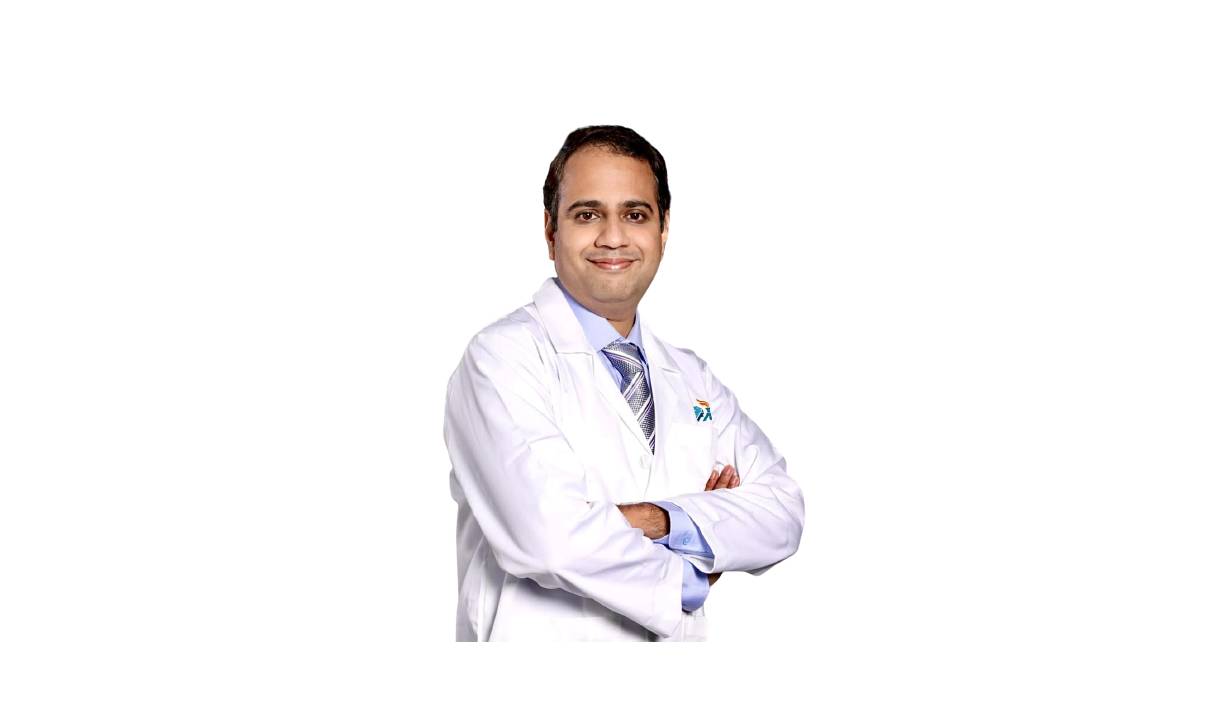Guide to Gastric Bypass Surgery Obesity And Obstructive Sleep Apnea
Know about the gastric bypass surgery, obesity and its health impacts, influence of gastric bypass surgery on OSA, procedure, potential risks and considerations.

Written by Dr. Siri Nallapu
Reviewed by Dr. Rohinipriyanka Pondugula MBBS
Last updated on 13th Jan, 2026

Introduction
Struggling with obesity often feels like a 24/7 battle, but for many, the fight doesn't stop when they go to bed. Obstructive Sleep Apnea (OSA), a serious sleep disorder where breathing repeatedly stops and starts, is a common and dangerous companion to severe obesity. The constant fatigue, loud snoring, and health risks can diminish your quality of life. If you're exploring long-term solutions, you may have heard about gastric bypass surgery. This guide will delve deep into the connection between obesity and OSA, explain how gastric bypass surgery works, and outline the profound impact it can have on your sleep and overall health. We'll walk you through the journey, from candidacy to life after surgery, empowering you with the knowledge to discuss this option confidently with your healthcare provider.
Understanding the Weighty Issue: Obesity and Its Health Impacts
Obesity is more than just a number on a scale. It's a complex, chronic disease characterised by an excessive amount of body fat that poses a significant health risk.
Consult a Top Gastroenterologist for Personalised Advice
What is Clinically Severe Obesity?
Clinically severe obesity, often classified as having a Body Mass Index (BMI) of 40 or higher, or a BMI of 35 or higher with at least one serious obesity-related condition (like sleep apnea, type 2 diabetes, or hypertension), is a medical diagnosis. At this stage, traditional methods of diet and exercise often yield limited long-term success due to metabolic adaptations. This is where interventions like gastric bypass surgery are considered.
The Domino Effect: Common Comorbidities of Obesity
Obesity triggers a cascade of health problems. The excess fat, particularly visceral fat around the organs, acts as an active endocrine organ, releasing inflammatory substances that disrupt the body's normal functions. This leads to a higher risk of:
- Type 2 Diabetes
- High Blood Pressure (Hypertension)
- Heart Disease
- Stroke
- Certain Cancers
- And crucially, Obstructive Sleep Apnea (OSA)
The Nighttime Struggle: What is Obstructive Sleep Apnea (OSA)?
Obstructive Sleep Apnea is a condition where the muscles in the back of the throat relax too much during sleep, causing a repeated collapse of the upper airway. This blocks airflow, leading to loud snoring, choking sounds, and sudden awakenings as the brain jolts the body awake to resume breathing.
Symptoms You Shouldn't Ignore
Common signs of OSA include:
- Loud, persistent snoring
- Witnessed episodes of stopped breathing during sleep
- Gasping or choking at night
- Morning headaches
- Excessive daytime sleepiness, Difficulty concentrating
- Irritability
How Obesity Causes or Worsens OSA
Excess weight, especially around the neck, directly contributes to OSA. The fatty tissue can physically narrow the
airway, making it more prone to collapse. Furthermore, fat deposits in the tongue and surrounding areas can increase
the pressure on the airway. This is why for many individuals with a high BMI, weight loss surgery to cure sleep apnea
becomes a primary consideration.
Gastric Bypass Surgery Explained (Roux-en-Y)
Roux-en-Y Gastric Bypass is one of the most common and effective types of bariatric surgery. It's a procedure that
combines both restriction and malabsorption.
How the Procedure Works: A Two-Pronged Approach
1. Restriction: The surgeon creates a small, egg-sized pouch from the top of the stomach. This significantly limits the
amount of food you can eat at one time, promoting a feeling of fullness quickly.
2. Malabsorption: The surgeon then connects this new stomach pouch directly to a lower part of the small intestine,
"bypassing" the majority of the stomach and the first section of the intestine. This reduces the calories and nutrients your
body absorbs.
Who is a Candidate for Weight Loss Surgery?
Candidacy is determined by a multidisciplinary team, but generally includes:
- A BMI of 40 or higher, or a BMI of 35-39.9 with a serious comorbidity like OSA.
- history of unsuccessful attempts at sustained weight loss through non-surgical methods.
- Commitment to lifelong lifestyle and dietary changes.
- Being psychologically prepared for the surgery and its aftermath.
The Powerful Link: How Gastric Bypass Surgery Alleviates Sleep Apnea
The impact of gastric bypass surgery on sleep apnea is often dramatic and multifaceted.
The Primary Mechanism: Significant Weight Loss
The most direct effect is the substantial and sustained weight loss. As patients lose weight, the fat deposits around the
neck and throat shrink. This physically opens up the airway, reducing the pressure and making it less likely to collapse
during sleep. Studies show that a weight loss of 10-15% can significantly improve OSA severity.
Beyond Weight: Reduction in Inflammation and Fat Deposits
Gastric bypass surgery is also a metabolic surgery. It induces changes in gut hormones that not only affect hunger and
satiety but also reduce systemic inflammation. Since OSA itself is an inflammatory condition, this hormonal shift can
further contribute to airway stability and improved respiratory control during sleep, offering benefits beyond just weight
loss.
What to Expect: The Journey Before and After Surgery
The process includes:
The Pre-Op Process: Tests, Diets, and Psychological Evaluation
Preparation is key. You will undergo a thorough screening, which includes a sleep study (polysomnography) to formally
diagnose and quantify the severity of your OSA. You may also need nutritional counselling, a psychological evaluation,
and a supervised liver-shrinking diet to make the surgery safer.
Life After Gastric Bypass: The First Year and Beyond
The first year is a period of rapid transformation. Patients typically lose 60-80% of their excess weight. As weight drops,
many experience a rapid improvement in their sleep apnea symptoms. It's common for individuals to report sleeping
through the night for the first time in years, with dramatically reduced or eliminated snoring. If your condition does not
improve after trying these methods, it's crucial to consult a specialist. You can book a physical visit to a doctor with
Apollo24|7 for a follow-up sleep study and CPAP titration.
Success Rates and Evidence: What the Research Says
The evidence supporting gastric bypass for sleep apnea is robust.
Data on Sleep Apnea Resolution Post-Surgery
Research published in journals like JAMA indicates that bariatric surgery leads to the complete resolution of sleep
apnea in approximately 75-85% of patients. In most other cases, the severity is significantly reduced, often allowing for
lower CPAP pressures or discontinuation of therapy under medical supervision.
Improvements in Other Obesity-Related Conditions
The benefits extend far beyond sleep. Gastric bypass surgery is highly effective in causing remission of type 2 diabetes
(in over 80% of cases) and resolving hypertension in a majority of patients, showcasing its power as a comprehensive
treatment for metabolic syndrome.
Weighing the Decision: Potential Risks and Considerations
Like any major surgery, gastric bypass carries risks that must be carefully considered.
Short-term Surgical Risks
These include standard surgical risks like infection, bleeding, blood clots, and adverse reactions to anaesthesia. There is
also a small risk of leaks from the surgical connections.
Long-term Nutritional Considerations and Lifestyle Changes
Patients must commit to lifelong changes. This includes taking daily vitamin and mineral supplements (like B12, iron,
calcium, and vitamin D) to prevent deficiencies, eating small, protein-focused meals, and avoiding sugary foods that
can cause "dumping syndrome." Apollo24|7 offers convenient home collection for tests like vitamin D or HbA1c,
making it easier to monitor your nutritional status post-surgery.
Is Gastric Bypass Right for You? Talking to Your Doctor
Deciding on gastric bypass surgery is a deeply personal one that requires an honest discussion with your healthcare
team. Prepare questions about expected outcomes, potential risks, the support system available at your surgical centre,
and the long-term lifestyle commitment. Be open about your struggles with obesity and sleep apnea to determine if you
are a good gastric bypass candidate with severe sleep apnea.
Conclusion
Living with the dual challenges of severe obesity and obstructive sleep apnea can feel overwhelming, but effective solutions exist. Gastric bypass surgery has proven to be a transformative intervention, offering a path not just to substantial weight loss but to reclaiming restful sleep and overall health. By addressing the root cause of the excess weight and its metabolic consequences, this procedure can break the cycle of fatigue and health complications. The journey requires commitment, but the potential reward, a life with more energy, better health, and peaceful nights, is profound. If you see yourself in this struggle, take the first step by having an informed conversation with a bariatric specialist to explore if this path is right for you.
Consult a Top Gastroenterologist for Personalised Advice
Consult a Top Gastroenterologist for Personalised Advice

Dr. Aakash Garg
Gastroenterology/gi Medicine Specialist
12 Years • MBBS, DNB (Medicine), DrNB (Gastroentrology).
Bilaspur
Apollo Hospitals Seepat Road, Bilaspur
(150+ Patients)

Dr. Lekkala Rajesh
Gastroenterology/gi Medicine Specialist
12 Years • MBBS, DNB Internal Medicine DrNB Medical Gastroenterology and Hepatology | Medical Gastroenterology
Secunderabad
Apollo Hospitals Secunderabad, Secunderabad
(75+ Patients)

Dr. Bharani Immaneni
Gastroenterology/gi Medicine Specialist
12 Years • MD DM Gastroentrology
Secunderabad
Apollo Hospitals Secunderabad, Secunderabad
(75+ Patients)

Dr. Aditya Shah
Gastroenterology/gi Medicine Specialist
10 Years • MBBS, MD General Medicine, DM Medical Gastroenterology
Chennai
Apollo Hospitals Greams Road, Chennai
(225+ Patients)

Dr Amey Sonavane
Gastroenterology/gi Medicine Specialist
11 Years • "MBBS, DNB (Internal Medicine) DNB (Gastroenterology) "
Mumbai
Apollo Hospitals CBD Belapur, Mumbai
(100+ Patients)
Consult a Top Gastroenterologist for Personalised Advice

Dr. Aakash Garg
Gastroenterology/gi Medicine Specialist
12 Years • MBBS, DNB (Medicine), DrNB (Gastroentrology).
Bilaspur
Apollo Hospitals Seepat Road, Bilaspur
(150+ Patients)

Dr. Lekkala Rajesh
Gastroenterology/gi Medicine Specialist
12 Years • MBBS, DNB Internal Medicine DrNB Medical Gastroenterology and Hepatology | Medical Gastroenterology
Secunderabad
Apollo Hospitals Secunderabad, Secunderabad
(75+ Patients)

Dr. Bharani Immaneni
Gastroenterology/gi Medicine Specialist
12 Years • MD DM Gastroentrology
Secunderabad
Apollo Hospitals Secunderabad, Secunderabad
(75+ Patients)

Dr. Aditya Shah
Gastroenterology/gi Medicine Specialist
10 Years • MBBS, MD General Medicine, DM Medical Gastroenterology
Chennai
Apollo Hospitals Greams Road, Chennai
(225+ Patients)

Dr Amey Sonavane
Gastroenterology/gi Medicine Specialist
11 Years • "MBBS, DNB (Internal Medicine) DNB (Gastroenterology) "
Mumbai
Apollo Hospitals CBD Belapur, Mumbai
(100+ Patients)
More articles from General Medical Consultation
Frequently Asked Questions
1. Will my sleep apnea definitely be cured after gastric bypass surgery?
While complete resolution is very common (75-85% of cases), outcomes vary. Most patients experience significant improvement. A follow-up sleep study is necessary to officially determine if you still need CPAP therapy.
2. How soon after surgery will I see an improvement in my sleep?
Many patients report improvements within the first few months as they begin to lose weight rapidly. However, the most significant changes are typically seen after losing a substantial amount of weight, usually within the first year.
3. What are the non-surgical alternatives for obesity and sleep apnea?
The primary non-surgical treatment for OSA is CPAP therapy. For weight management, options include intensive lifestyle intervention programs, prescription weight-loss medications, and endoscopic procedures. However, for clinically severe obesity, these may be less effective long-term than surgery.
4. Can the sleep apnea come back if I regain weight?
Yes. The improvement in sleep apnea is directly linked to maintaining a lower weight. Significant weight regain can cause OSA to return. This highlights the importance of the permanent lifestyle changes associated with life after gastric bypass.
5. Is gastric bypass covered by insurance for sleep apnea?
Most insurance companies will cover gastric bypass surgery if you meet specific criteria, which often includes a diagnosis of a serious comorbidity like moderate to severe Obstructive Sleep Apnea. Prior authorisation and detailed medical records are usually required.




